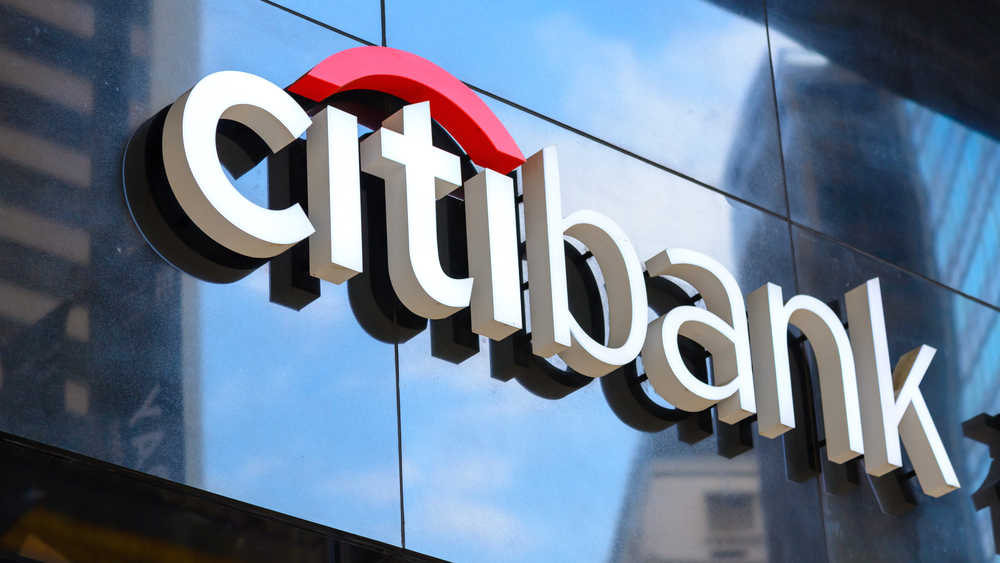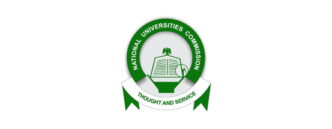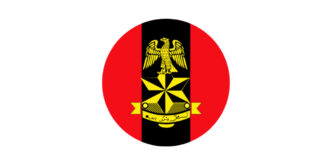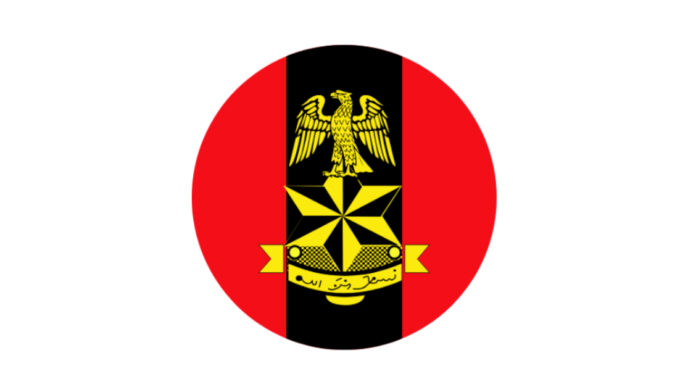Recruitment, apply for World Bank Group recruitment 2025 below.
Gatekeepers News reports that the World Bank Group – IFC, a sister organisation of the World Bank and member of the World Bank Group (WBG) – is the largest global development institution focused on the private sector in emerging markets. It works in more than 100 countries, using its capital, expertise, and influence to create markets and opportunities in developing countries.
World Bank Group is recruiting to fill the position below:
ET Consultant
Specifications:
- Full Time
- Required Qualifications: BA/BSC/HND – MBA/MSC/MA
- Location: Abuja | Nigeria.
Description:
The Gender Innovation Lab (GIL) of the World Bank’s Africa Gender Impact Evaluation Unit, which is mapped to the Africa Region Chief Economist’s Office, conducts impact evaluations of development interventions in Sub-Saharan Africa, seeking to examine the gender gap between men and women when it comes to economic growth and empowerment. With the results of the impact evaluations, the GIL aims to support the design of innovative, scalable interventions to address gender inequality in productive economic sectors across Africa. The impact objective of GIL is to increase take-up of effective policies by governments, development organizations, and the private sector in order to address the underlying causes of gender inequality in Africa, and through that promote growth.
Background
Institutional Context: The Gender Innovation Lab (GIL) is housed within the Africa Region Gender Impact Evaluation Unit, mapped to the Africa Region Chief Economist’s office. The Economist will work within this unit and will also provide research uptake support to operational colleagues in the Nigeria division, as well as in selected World Bank Global Practices.
Impact Objective: The Gender Innovation Lab has a clear and actionable impact objective: to increase take-up of effective policies that can address the underlying causes of gender inequality in Africa, particularly in terms of women’s economic and social empowerment, and through that promote growth. GIL aims to do this by strengthening knowledge, in particular, by producing and delivering a new body of evidence and developing a compelling narrative, geared towards policymakers, on what works and what does not work in promoting gender equality. This new evidence will deepen capacity for gender-informed policymaking throughout the Africa region, including policies created and enacted by governments, as well as common practices and program models of private firms, civil society, and development agencies.
Regional Orientation: GIL’s work is focused exclusively on Sub-Saharan Africa, where the team is currently working in 20+ countries with the aim of building an evidence base with lessons for the region.
Sector Specific: GIL is focused on conducting rigorous research in order to generate evidence on how to close the gender gap in earnings, productivity, assets, and agency. GIL’s work is grouped into several categories: agricultural productivity, private sector development, land and property rights, and youth employment, and social norms.
Impact Evaluations: GIL is currently working on over 80 impact evaluations, including 10 in Nigeria, with additional work in the pipeline.
Influencing Policies and Practices that Matter for Gender Equality: GIL engages in rigorous research by partnering with high-profile, large-scale, innovative and/or potentially influential projects and project partners on its impact evaluations. GIL then uses its results, which are disseminated in papers, presentations, policy briefs, blogs, and in other ways, in order to influence how development projects and policies are conceived and run. GIL aims to help direct funding to the most effective programs and policies, increase the availability of good data to inform programs and policies that target gender inequalities, and increase the use of evidence to inform program and policy decisions.
Nigeria Country-Level Lab
Given the strategic position of Nigeria in SSA and owing to the size of the economy, large population with high ethnic diversity, and gender gaps, the GIL is intensifying its work in Nigeria with a dedicated country lab. The Lab is pivoted on three pillars including 1) a diagnostic study of gender gaps in earnings, constraints to women’s economic empowerment in Nigeria, and mapping of evidence-based solutions to address these constraints 2) generating evidence on what works for women’s economic empowerment in Nigeria, and 3) using evidence on what works to shape policies and programs to accelerate gender inclusive growth. The Nigeria Gender Innovation Lab (NiGIL), started in 2019 and achieved major milestones including the completion and launch of the gender diagnostic report, onset of new impact evaluations to generate new evidence on women’s economic empowerment (WEE), and establishment of partnerships with government actors at the national and sub-national levels.
NiGIL’s overarching goal is for the evidence on what works for women’s economic empowerment to be used in policymaking in Nigeria. Critical to achieving this objective is a timely and effective engagement of policymakers at all levels. Policymakers are central to the design and implementation of the transformative changes required to accelerate women’s economic empowerment.
Duties And Accountabilities
We are looking for an energetic and result-driven economist with a passion for women’s empowerment to join our team to support our knowledge production work through impact evaluations and other analytical work, as well as our policy engagement with government and non-government actors in the space of WEE in Nigeria. The position is based in Abuja. The Extended Term Consultant will work under the supervision of Africa Gender Innovation Lab Senior Economist and head of the Nigeria GIL. Key responsibilities will include:
Lead the design and implementation of selected impact evaluations and other analytical pieces:
- Partner with project teams including government and World Bank country and project task teams in Nigeria to identify and develop scalable, innovative interventions that address key constraints to women’s productivity.
- In collaboration with government and WB operations, generate rigorous evidence to inform what works at scale to empower women economically, by designing and implementing impact evaluations of these innovative interventions, as well as other rigorous analytical work, as relevant.
- Provide support to impact evaluations of ongoing interventions, including designing baseline and follow-up surveys, undertaking data analysis, and writing relevant reports.
- Build and manage teams comprised of external researchers, government and NGO collaborators, field staff, data analysts, and survey teams.
- Prepare project work plans, budgets, etc.
- Organize and provide refresher training on impact evaluation for project and implementing partner staff, local organizations and primary stakeholders, in line with the projects’ objectives.
Engage With Government Partners And World Bank Project Teams To Present Evidence And Use Evidence To Build Stronger Policies On Women’s Economic Empowerment (research Uptake) In Nigeria. Work Closely With The Research Uptake Team Based In Washington, The Economists Leading Work On Nigeria To Help Government And Development Partners Effectively Use The Evidence That GIL Produces From Nigeria And The Rest Of The Continent. Identify Key Opportunities For Policy Influence At The Policy And Program Level And Mobilize The Necessary Resources To Provide Timely And Targeted Policy Advice And Capacity Building, For Greater Effectiveness. Tasks Include, But Are Not Limited To
- Organize capacity building workshops and policy engagement meetings with government partners and other stakeholders.
- Interact directly with mid-level policymakers to share the relevant evidence.
- Support the development and review of action plans with stakeholders and partners.
- Support engagements with partners and potential teams on scoping of new impact evaluation studies.
- Carry out such activities as the NiGIL team reasonably requests and delegates to facilitate project implementation and achievement of the goals of the NiGIL.
- Assist with production of knowledge dissemination communications products that are appropriately tailored to meet the needs of diverse groups of policymakers and key stakeholders.
- Coordinate communications within the Government of Nigeria and liaise with policymakers that are interested in GIL’s research by organizing presentations and seeking opportunities for technical assistance to scale up what works.
- Help create new partnerships around evidence generation and evidence use, between the Nigeria GIL, CMU task teams, external collaborators, in academia, NGOs, and government.
- Assist with the design and logistics for large communication events, including workshops to share results of the gender diagnostic.
- Liaise and interact effectively with an extensive network of contacts, at senior levels, and respond effectively to inquiries and to diverse situations that require tact and pragmatic problem-solving skills.
- Provide oral and written responses for partner queries about the Nigeria Gender Innovation Lab’s work.
- Contribute to team discussions and decisions on overall strategy and implementation of the NiGIL activities.
- Draft talking points and short memos for senior officials.
- Facilitate communication between the Nigeria Gender Innovation Lab and partners including governments and non-governmental organizations.
- Travel as part of the NiGIL team to support NiGIL activities as may be required.
Qualifications and Requirements:
- Minimum of Master’s degree (PhD preferred) in relevant field (Economics, Development Studies, Public Policy).
- Five years + of relevant professional and/or academic experience in applied research, gender and impact evaluation required.
- Excellent analytical and quantitative skills including a strong econometrics background, and general economic knowledge and analytical skills.
- Demonstrated track record of working with economic data and analytical tools and models to conduct economic analyses and produce user-friendly written outputs; understands underlying statistical concepts.
- Experience writing and publishing papers in peer-reviewed academic journals.
- Experience drafting communications products (policy briefs, blogs, talking points etc.) based on research and creatively disseminating publications through social media outlets, presentations, and conferences. Solid writing and presentation skills.
- Experience managing partner and funder relationships. Ability to cultivate effective, productive relationships and partnerships.
- Experience working or studying in one or more Sub-Saharan African countries preferred; Interest and/or background in gender issues is a plus.
- Excellent workflow management and task organization skills. Strong drive for results and demonstrated ability to multitask and to exercise strategic thinking to make decisions under complex circumstances and with little supervision. Ability to handle concurrent activities efficiently under pressure, with minimum supervision and to meet tight deadlines. Ability to work flexibly on a range of assignments and tasks, and to adjust to and prioritize a variety of complex evolving tasks. Highly organized, high degree of motivation, initiative, flexibility, reliability, and a high level of energy.
- Very strong interpersonal and communication skills and ability to develop effective relations; capacity to interact with an extensive network of contacts at senior level; and to understand the requirements and needs of a very diverse and demanding set of stakeholders.
- Positive attitude and ability to work collegially and effectively in a multi-cultural working environment and internationally with a diverse range of Governments and other stakeholders.
- Takes personal ownership, responsibility, and accountability for timely response to queries, requests, or needs; and to meet deadlines and achieve agreed-upon results; working to remove obstacles that may impede execution or overall success.
- Strong written and verbal communication skills in English (required).
Deadline: November 14, 2025
Disclaimer: Gatekeepers News gets job vacancies from advertising agencies and other sources to inform the public about employment opportunities. Gatekeepers News or any agent does not seek any payment in whatever form for prospective candidates to apply. We, therefore, implore you not to pay for any job vacancies because they are not for sale, and we are not responsible for any loss that may arise as a result of this.










